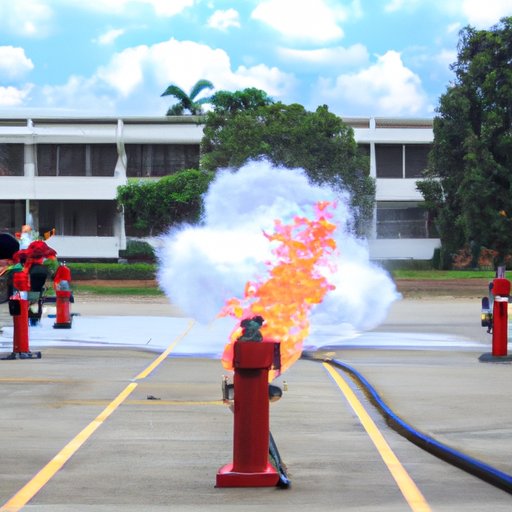Introduction
Fire science is the study of fire safety, firefighting techniques, and fire prevention. It encompasses a variety of topics related to the control, suppression, and extinguishment of fires. Fire science courses equip students with the knowledge and skills needed to protect lives and property from fire and other related hazards.
Firefighting Techniques and Strategies
Firefighting techniques and strategies are at the core of fire science education. Students learn about different types of fire suppression strategies such as direct attack, indirect attack, and thermal containment. They also learn about the various types of firefighting equipment, including ladders, hoses, nozzles, and breathing apparatus. Additionally, students gain a basic understanding of firefighting tactics, such as search and rescue, ventilation, and salvage operations.
Fire Prevention and Safety
Fire prevention and safety are essential components of fire science. Students learn how to identify potential fire hazards in their environment and develop plans to reduce the risk of fire. They also learn about intrusion detection systems and fire extinguisher training. Additionally, they gain an understanding of the importance of emergency preparedness and response planning.
Hazardous Materials Training
Hazardous materials are a major concern in the fire service. Fire science courses cover the various types of hazardous materials, their associated risks, and safe handling procedures. Students learn how to assess and manage hazardous material-related risks and develop emergency response plans.
Fire Investigation and Analysis
Fire investigation and analysis are important aspects of fire science. Students learn how to investigate the cause and origin of fires and analyze fire data. They also gain an understanding of scene reconstruction, which involves gathering and analyzing evidence from the fire scene.
Fire Protection Systems Design
Fire protection systems design is a key component of fire science. Students learn about building code requirements and life safety systems. They also gain an understanding of fire alarm system design, which includes selecting and installing appropriate components. Additionally, they learn about inspecting and testing fire protection systems.
Fire Law and Ethics
Fire law and ethics are important topics in fire science. Students learn about the legal aspects of fire fighting, such as liability issues and professional conduct and standards. They also explore ethical considerations related to firefighting, including the use of force and decision-making in dangerous situations.
Conclusion
Fire science courses provide students with an understanding of the fundamentals of firefighting and protecting lives and property from fire. Students learn about fire suppression strategies, fire protection systems, hazardous materials training, fire investigation, and fire law and ethics. Through these courses, students gain valuable knowledge and skills that can be used to save lives and property in the event of a fire.
(Note: Is this article not meeting your expectations? Do you have knowledge or insights to share? Unlock new opportunities and expand your reach by joining our authors team. Click Registration to join us and share your expertise with our readers.)
